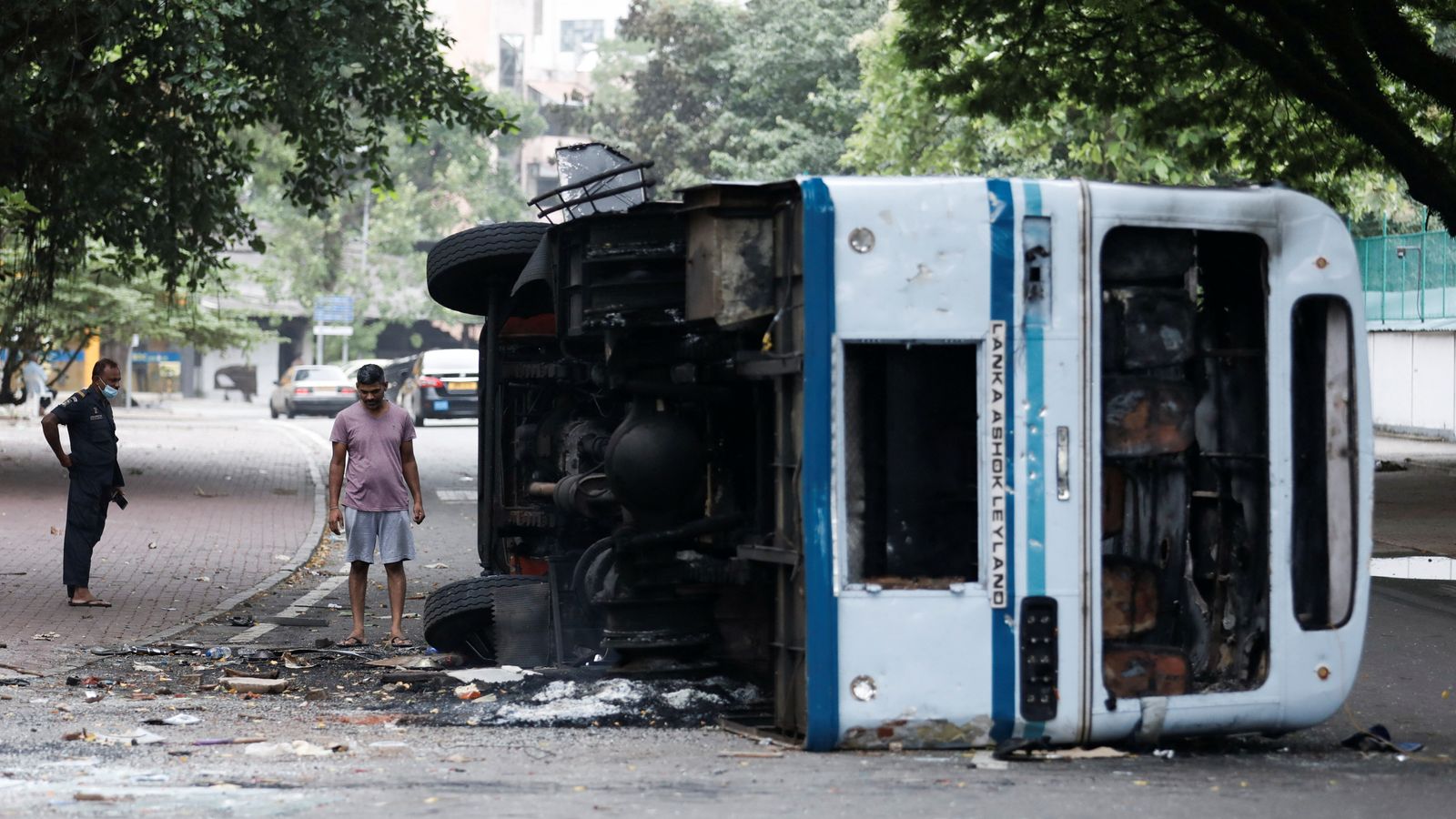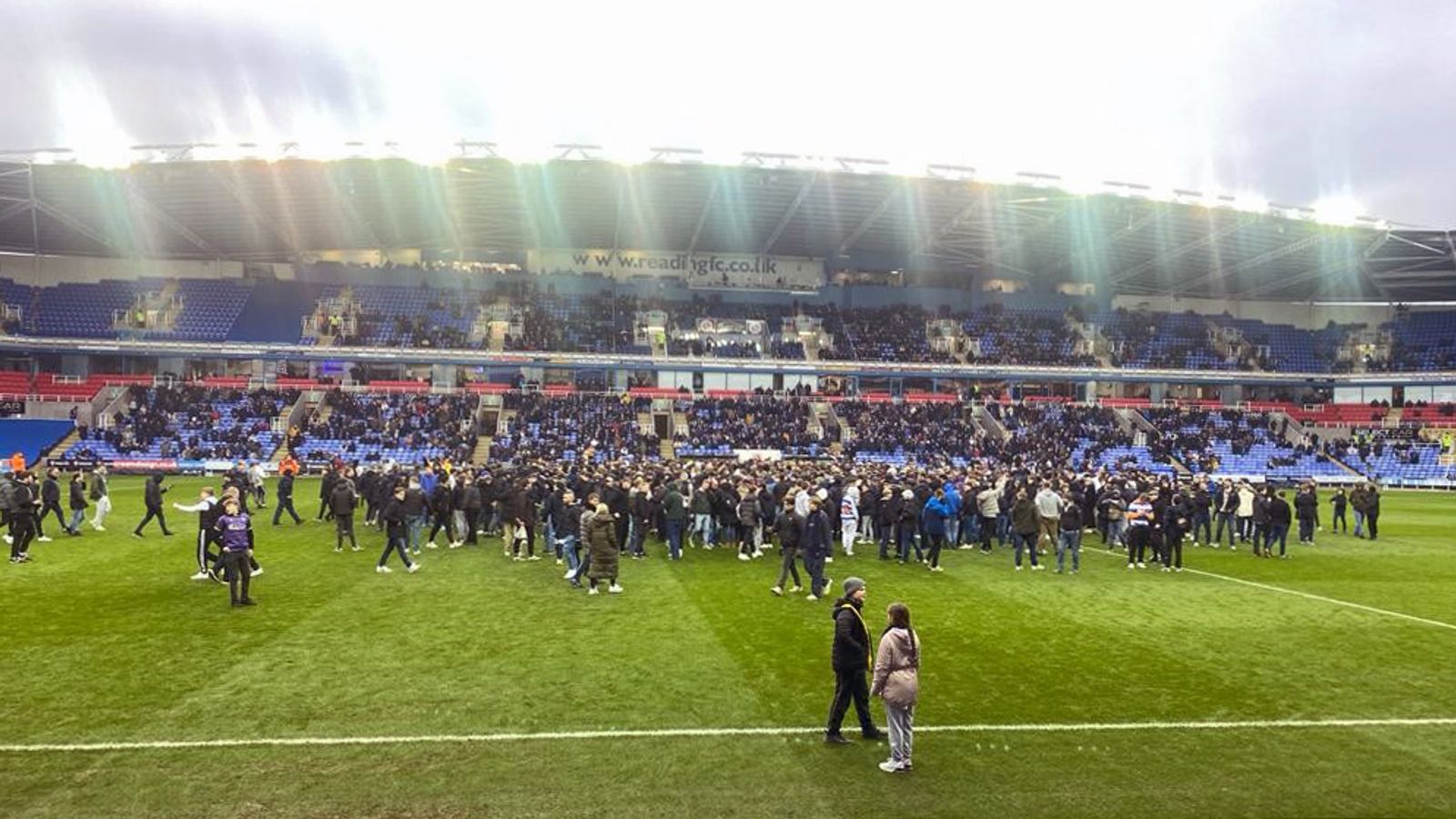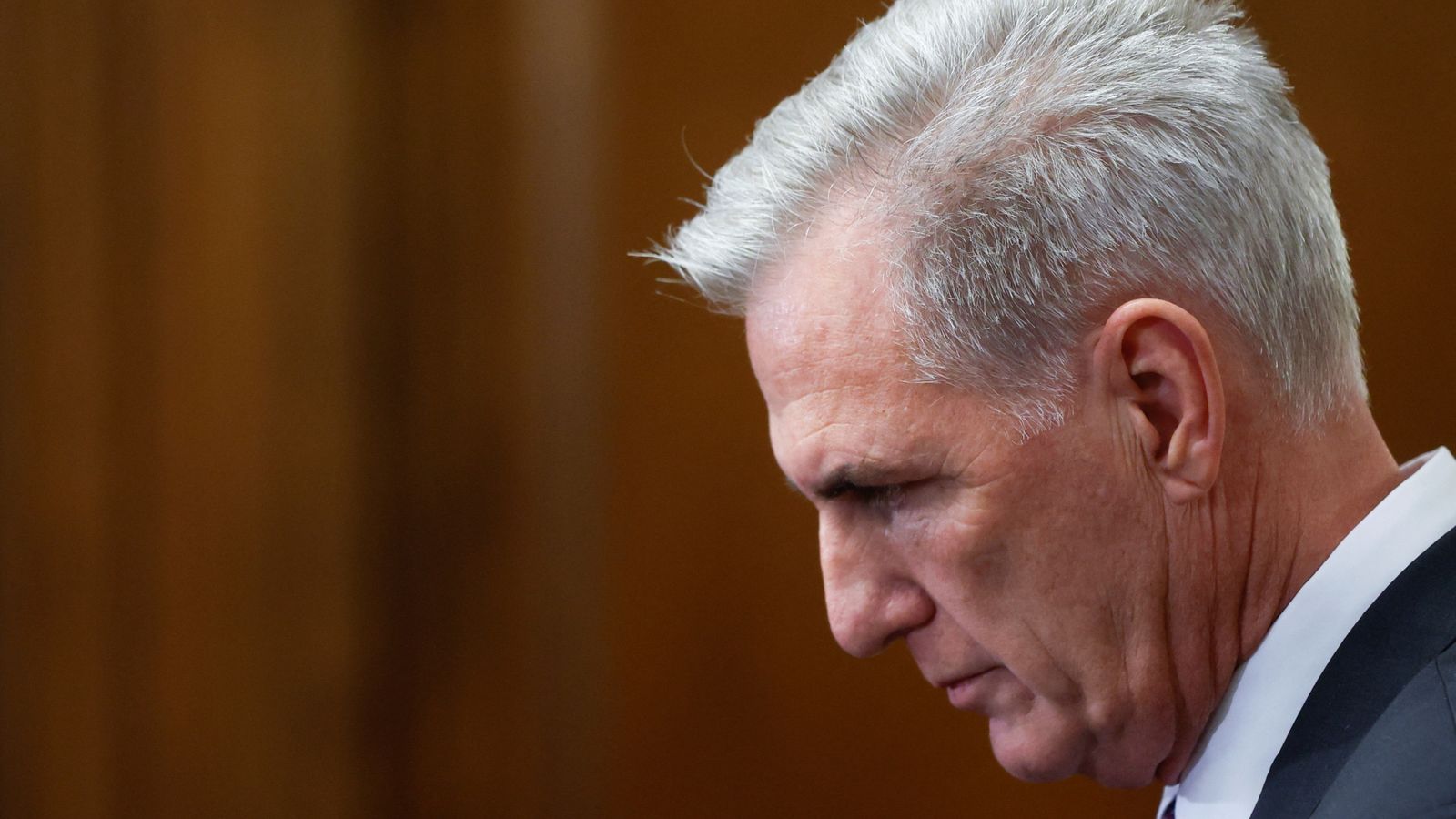Veteran Sri Lankan politician Ranil Wickremesinghe has been sworn in as the country’s prime minister for a sixth time, in a bid to ease tensions on the island nation engulfed in a political and economic crisis.
The move is a contentious choice by President Gotabaya Rajapaksa, but Mr Wickremesinghe took his oath in a ceremony at the presidential residence on Thursday.
It comes after the president’s brother Mahinda Rajakapsa resigned from the role of prime minister on Monday, following violent attacks by supporters on peaceful anti-government protests.
His resignation automatically dissolved parliament and left in its place an administrative vacuum.
What is happening in Sri Lanka?
The new appointment is an attempt by President Rajakapsa to ease tensions and restore international credibility in Sri Lanka.
On Wednesday, authorities deployed armoured vehicles and troops in the streets of the commercial capital Colombo after attacks on protesters triggered a wave of violence across the country. Nine people died and more than 200 were injured.
Security forces have been ordered to shoot people deemed to be participating in the unrest, as sporadic acts of arson and vandalism continue despite a strict nationwide curfew that began Monday evening.
Why is the new prime minister a contentious choice?
When he was previously prime minister from 2015 to 2019, Mr Wickremesinghe was accused of protecting Mr Rajapaksa’s powerful family from allegations of corruption and other wrongdoing.
Opposition lawmaker Anura Dissananayake said the choice of Mr Wickremesinghe, 73, was more about protecting the president and his family from public anger over his role in the economic crisis than solving the country’s problems.
Buddhist and Catholic clergy also objected to the selection.
“This decision has been taken totally disregarding the aspirations of the people who are protesting today. The protests can only get worse by this decision,” said the Rev Omalpe Sobitha, a senior Buddhist monk.
Catholic Archbishop of Colombo, Cardinal Malcolm Ranjith, said for the country to move forward from the crisis, “we need a complete change of the system”.
Read more:
MP dies in stand-off with protesters
The country where limes cost 240% more than last year
Mr Wickremesinghe’s reputation was also damaged during his previous term as PM when he was in a difficult power-sharing arrangement with then-president Maithripala Sirisena.
Conflict, and a communication breakdown between them was blamed for intelligence lapses that led to Easter Sunday suicide bomb attacks in 2019 which killed more than 260 people.
Country driven to near bankruptcy
Following weeks of protests, the government is negotiating a bailout package with the International Monetary Fund.
Sri Lanka is currently engulfed in its biggest economic crisis since independence, with protesters previously demanding both Rajapaksas resign over a debt crisis that has seen the country driven to near bankruptcy and caused a shortage of food, fuel and other essentials.
The nation has suspended repayments of $7bn (£5.7bn) in foreign loans due this year.
The IMF has said any short or long-term assistance depends on the outcome of talks with creditors on loan restructuring. It must repay about $25bn in foreign loans by 2026 out of a current total foreign debt of $51bn.







